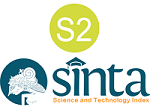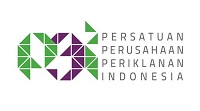Communication identity of digital immigrant micro-entrepreneur in adapting to promotional innovation
Abstract
The digital era requires an entrepreneur to adapt through innovation, especially in terms of promotion to the audience with an identity that adjusts to changes. Promotion adaptation plays an essential role in increasing business capacity and competitiveness. This research aims to identify the communication identities of micro business actors, including digital immigrant groups, and their adaptation to promotional innovations. This research uses a qualitative method by interviewing thirty informants of micro business actors in West Java who were born before 1981. This research uses data processing techniques through a coding process using NVivo software. The study results show that the identity formed through social interaction of micro business actors is closely related to the decision to adopt promotions. Micro-business actors have a friendly and sociable nature that makes it easiand er for them to access information. In addition, they are also curious and confident, so they encourage them to learn many new things that can advance their business. Micro-business actors of the immigrant digital group acquire these traits from the influence of “someah” culture and a supportive environment. The communication identity or self-concept owned by micro business actors in West Java provides opportunities for them to develop themselves in terms of receiving innovation, especially in terms of promotion. In addition, the acceptance of innovation is closely related to the character and self-concept of micro-business actors. The importance of support from the government, the surrounding environment, and stakeholders to make it easier for micro business actors to accept an innovation.
Keywords
Full Text:
PDFReferences
Abduh, T., Remmang, H., Abubakar, H., Ridwan, & Karim, A. (2024). Increasing the competitiveness of MSMEs in the era of revolution 5.0 at Makassar City. The Seybold, 19(08), 193–206. https://doi.org/10.5281/zenodo.13319539
Abdussamad, Z. (2021). Metode penelitian kualitatif (P. Rapanna (ed.); 1st ed.). Syakir Media Press.
Abrahamson, E., & Rosenkopf, L. (1997). Social network effects on the extent of innovation diffusion: A computer simulation. Organization Science, 8(3), 289–309.
Aldekheel, A., Khalil, O., & AlQenaei, Z. M. (2022). Factors impacting teachers’ continued adoption in pre-college education. Journal of Information Technology Education: Research, 21, 465–500. https://doi.org/10.28945/5029
Alrishan, A. M. H. (2023). Determinants of intention to use ChatGPT for professional development among Omani EFL pre-service teachers. International Journal of Learning, Teaching and Educational Research, 22(12), 187–209. https://doi.org/10.26803/ijlter.22.12.10
Ardiyansyah, A., Suryantoro, D. N., Sutrisna, P., & Kadir, S. S. M. A. (2021). Penerapan filosofi Sunda “soméah hadé ka sémah” dalam interaksi virtual. Jurnal Kewarganegaraan, 5(2), 642–650. https://doi.org/10.31316/jk.v5i2.1958
Armas, K. L., Cruz, C. Dela, Navarro, J. E., & Viloria, V. (2024). Triple helix for sustainable development goals: An impact assessment of shared service facility for the competitiveness of micro, small, and medium enterprises in the Philippines. International Review of Management and Marketing, 14(3), 65–73. https://doi.org/10.32479/irmm.16103
Ayub, A., Scheunemann, M., Mavrogiannis, C., Rhim, J., Dautenhahn, K., & Nehaniv, C. L. (2022). Robot curiosity in human-robot interaction (RCHRI). 2022 17th ACM/IEEE International Conference on Human-Robot Interaction (HRI), 1231–1234. https://doi.org/10.1109/HRI53351.2022.9889478
Azizah, N. (2021). Survei: UMKM bertahan selama pandemi. Republika.
Bandur, A. (2019). Penelitian kualitatif studi multi-disiplin keilmuan dengan NVivo 12 Plus. Mitra Wacana Media.
Banerjee, R., Gupta, N. D., & Villeval, M. C. (2020). Feedback spillovers across tasks, self-confidence, and competitiveness. Games and Economic Behavior, 123, 127–170. https://doi.org/https://doi.org/10.1016/j.geb.2020.07.002
Bergquist, G., Soliz, J., Everhart, K., Braithwaite, D. O., & Kreimer, L. (2019). Investigating layers of identity and identity gaps in refugee resettlement experiences in the midwestern United States. Western Journal of Communication, 83(3), 383–402. https://doi.org/10.1080/10570314.2018.1552009
Buntoro, G. A., Astuti, I. P., Widhianingrum, W., Arifin, R., Winangun, K., & Selamat, A. (2023). Knowledge management system for handcrafted reog ponorogo products. The Electronic Journal of Knowledge Management, 21(2), 130–139. https://doi.org/10.34190/EJKM.21.2.3026
Camerani, R., Corrocher, N., & Fontana, R. (2016). Drivers of diffusion of consumer products: empirical evidence from the digital audio player market. Economics of Innovation and New Technology, 25(7), 731–745. https://doi.org/10.1080/10438599.2016.1142125
Cruz, N. A. Dela, Villanueva, A. C. B., Tolin, L. A., Disse, S., Lensink, R., & White, H. (2023). Protocol: Effects of interventions to improve access to financial services for micro-, small- and medium-sized enterprises in low- and middle-income countries: An evidence and gap map. Campbell Systematic Reviews, 19(3), 1–12. https://doi.org/10.1002/cl2.1341
Escobar-Farfán, M., Cervera-Taulet, A., & Schlesinger, W. (2024). Destination brand identity: challenges, opportunities, and future research agenda. In Cogent Social Sciences (Vol. 10, Issue 1). Cogent OA. https://doi.org/10.1080/23311886.2024.2302803
Fernández-De-álava, M., Quesada-Pallarès, C., & García-Carmona, M. (2017). Use of ICTs at work: An intergenerational analysis in Spain. In Culture and Education (Vol. 29, Issue 1, pp. 120–150). Fundacion Infancia y Aprendizaje. https://doi.org/10.1080/11356405.2016.1274144
Ferro, M. A., Dol, M., Patte, K. A., Leatherdale, S. T., & Shanahan, L. (2023). Self-concept in adolescents with physical-mental comorbidity. Journal of Multimorbidity and Comorbidity, 13(1), 1–10. https://doi.org/10.1177/26335565231211475
Firliandoko, R., Sarwoprasodjo, S., & Saleh, A. (2023). Peran politik dalam komunikasi gerakan sosial komunitas perubahan iklim. Jurnal Ilmu Komunikasi, 12(2), 406–425. https://doi.org/10.14710/interaksi.12.2.406-425
Fitrya, S., Unde, A., & Aziz, S. (2018). Pengungkapan identitas diri melalui media sosial: Studi mengenai etnografi virtual melalui vlog. Jurnal Komunikasi Kareba, 7(1), 83–92.
Frei-Landau, R., Muchnik-Rozanov, Y., & Avidov-Ungar, O. (2022). Using Rogers’ diffusion of innovation theory to conceptualize the mobile-learning adoption process in teacher education in the COVID-19 era. Education and Information Technologies, 27(9), 12811–12838. https://doi.org/10.1007/s10639-022-11148-8
Gartner, J., Fink, M., & Maresch, D. (2022). The Role of Fear of Missing Out and Experience in the Formation of SME Decision Makers’ Intentions to Adopt New Manufacturing Technologies. Technological Forecasting and Social Change, 180(June), 121723. https://doi.org/10.1016/j.techfore.2022.121723
Gino, F. (2018). The business case for curiosity. Harvard Business Review, 1(September-Oktober), 48–57. https://hbr.org/2018/09/the-business-case-for-curiosity
Goldman, M. J., Davis, A., & Little, J. (2016). Controlling land they call their own: Access and women’s empowerment in Northern Tanzania. The Journal of Peasant Studies, 43(4), 777–797. https://doi.org/10.1080/03066150.2015.1130701
Goode, J. R., Radovic-Fanta, J., & Cipra, A. (2020). Dissonance, detachment and college student identity: An exploration of identity gaps in the emerging majority student. Qualitative Research Reports in Communication, 22(1), 80–88. https://doi.org/10.1080/17459435.2020.1853205
Hariandi, A. (2017). Meningkatkan nilai karakter bersahabat melalui model teams games tournaments di SDIT Al-Azhar Kota Jambi. Jurnal Gentala Pendidikan Dasar, 2(1), 19–35. https://doi.org/https://doi.org/10.22437/gentala.v2i1.6780
Hernita, H., Surya, B., Perwira, I., Abubakar, H., & Idris, M. (2021). Economic business sustainability and strengthening human resource capacity based on increasing the productivity of small and medium enterprises (SMES) in Makassar city, Indonesia. Sustainability (Switzerland), 13(6), 1–37. https://doi.org/10.3390/su13063177
Horwitz, I. M., Matheny, K. T., Laryea, K., & Schnabel, L. (2022). From bat mitzvah to the bar: Religious habitus, self-concept, and women’s educational outcomes. American Sociological Review, 87(2), 336–372. https://doi.org/10.1177/00031224221076487
Institute for Development of Economics and Finance (INDEF). (2024). Peran platform digital terhadap pengembangan UMKM di Indonesia. Institute for Development of Economics and Finance (INDEF).
Izzah, N., Sumartias, S., & Perbawasari, S. (2024). Maximizing brand image building as a semi-pub café through emotional branding. Jurnal Manajemen Komunikasi, 8(2), 159–179. https://doi.org/10.24198/jmk.v8i2.49682
Jirout Košová, M., Kopecký, R., Oulovský, P., Nekvinda, M., & Flegr, J. (2021). My friend’s true self: Children’s concept of personal identity. Philosophical Psychology, 34(1), 47–75. https://doi.org/10.1080/09515089.2020.1860209
Karimova, G. Z., & Shirkhanbeik, A. (2015). Society of things: An alternative vision of Internet of things. Cogent Social Sciences, 1(1). https://doi.org/10.1080/23311886.2015.1115654
Kawamoto, T., Ura, M., & Hiraki, K. (2017). Curious people are less affected by social rejection. Personality and Individual Differences, 105, 264–267. https://doi.org/https://doi.org/10.1016/j.paid.2016.10.006
Khairunnisa, P. K., & Juliadi, R. (2023). Social media marketing strategy to increase brand awareness of local fashion brands. Jurnal Manajemen Komunikasi, 8(1), 21–38. https://doi.org/https://doi.org/10.24198/jmk.v8i1.43548
Kraja, Y. B., & Berberi, A. (2023). Female entrepreneurs and motivational factors. Journal of Law and Sustainable Development, 11(4), 1–18. https://doi.org/10.55908/sdgs.v11i4.899
Krieger, J. L., Palmer-Wackerly, A. L., Krok-Schoen, J. L., Dailey, P. M., Wojno, J. C., Schoenberg, N., Paskett, E. D., & Dignan, M. (2015). Caregiver perceptions of their influence on cancer treatment decision making: Intersections of language, identity, and illness. Journal of Language and Social Psychology, 34(6), 640–656. https://doi.org/10.1177/0261927X15587556
Littlejohn, S. W., & Foss, K. A. (2008). Theories of human communication (J. Perkins (ed.); 9th ed.). Lyn Uhl.
Liu, Y., & Yang, Y. (2018). Empirical examination of users’ adoption of the sharing economy in China using an expanded technology acceptance model. Sustainability (Switzerland), 10(4). https://doi.org/10.3390/su10041262
Marzal, J., Huda, N., & Hasibuan, M. H. E. (2022). Digital immigrant lecturers’ perceived easiness about and acceptance towards e-learning during the pandemic era. JPI (Jurnal Pendidikan Indonesia), 11(3), 552–560. https://doi.org/10.23887/jpiundiksha.v11i3.41248
McCarroll, C. J. (2019). Looking at the self: Perspectival memory and personal identity. Philosophical Explorations, 22(3), 259–279. https://doi.org/10.1080/13869795.2018.1562087
Moleong, L. J. (2019). Metodologi penelitian kualitatif (Suryani (ed.)). PT Remaja Rosdakarya.
Noviana, M., Maftuh, B., & Wilodati, W. (2022). Friendly feeling sebagai modal sosial siswa dalam warga sekolah multikultural pada mata pelajaran sosiologi. Jurnal Pendidikan Sosiologi Dan Humaniora, 13(2), 380. https://doi.org/10.26418/j-psh.v13i2.54861
Nurmalasari, Tahir, M., & Korompot, C. A. (2023). The impact of self-confidence on students public speaking ability. International Journal of Business, English, and Communication (IJoBEC), 1(2), 53–57. https://journal.unm.ac.id/index.php/ijobec/article/view/70
Oumlil, A. Ben, & Balloun, J. L. (2017). Cultural variations and ethical business decision making: a study of individualistic and collective cultures. Journal of Business and Industrial Marketing, 32(7), 889–900. https://doi.org/10.1108/JBIM-08-2016-0194
Park, I., Kim, D., Moon, J., Kim, S., Kang, Y., & Bae, S. (2022). Searching for New Technology Acceptance Model under Social Context: Analyzing the Determinants of Acceptance of Intelligent Information Technology in Digital Transformation and Implications for the Requisites of Digital Sustainability. Sustainability (Switzerland), 14(1). https://doi.org/10.3390/su14010579
Prensky, M. (2001). Digital natives, digital immigrants. MCB University Press, 9(5), 1–6.
Ramadhyanti, Z., & Arimi, S. (2024). Sapaan sebagai ungkapan fatis pada masyarakat Sunda. Literasi: Jurnal Ilmiah Pendidikan Bahasa, Sastra Indonesia Dan Daerah, 14(1), 80–88. https://doi.org/https://doi.org/10.23969/literasi.v14i1.10098
Riemenschneider, C. K., Buche, M. W., & Armstrong, D. J. (2019). He said, she said: Communications theory of identity and the challenges men face in the information systems workplace. The Data Base for Advances in Information System, 50(3), 85–115. https://doi.org/10.1145/3353401.3353407
Rizana, A. H., Sumartias, S., & Mirawati, I. (2024). Revitalizing kebaya in the digital era : Qualitative analysis of Rania Yamin’s TikTok. Jurnal Manajemen Komunikasi, 9(1), 1–25. https://doi.org/10.24198/jmk.v8i2.53529
Rogers, E. (2003). Diffusion of Innovation (5th ed.). Free Press.
Rubinsky, V. (2019). Identity gaps and jealousy as predictors of satisfaction in polyamorous relationships. Southern Communication Journal, 84(1), 17–29. https://doi.org/10.1080/1041794X.2018.1531916
Rupeika-Apoga, R., & Petrovska, K. (2022). Barriers to sustainable digital transformation in micro-, small-, and medium-sized enterprises. Sustainability (Switzerland), 14(20). https://doi.org/10.3390/su142013558
Salain, P. P. P. (2021). Kepemimpinan tranformasional dan transaksional dalam pengembangan budaya organisasi serta kinerja karyawan pada organisasi bisnis (W. Kurniawan (ed.); 1st ed.). Pena Persada.
Sauky, M. A., & Bukhori, B. (2021). Makna sosial dalam nilai-nilai budaya Sunda pada lakon wayang golek Ki Dalang Wisnu Sunarya. Temali: Jurnal Pembangunan Sosial, 4(2), 155–167. https://doi.org/10.15575/jt.v4i2.12722
Schermer, J. A., Branković, M., Čekrlija, Đ., MacDonald, K. B., Park, J., Papazova, E., Volkodav, T., Iliško, D., Wlodarczyk, A., Kwiatkowska, M. M., Rogoza, R., Oviedo-Trespalacios, O., Ha, T. T. K., Kowalski, C. M., Malik, S., Lins, S., Navarro-Carrillo, G., Aquino, S. D., Doroszuk, M., … Kruger, G. (2023). Loneliness and vertical and horizontal collectivism and individualism: A multinational study. Current Research in Behavioral Sciences, 4, 1–14. https://doi.org/10.1016/j.crbeha.2023.100105
Sela, Y., & Amichai-Hamburger, Y. (2024). “Baby, I Can’t Drive My Car”: How Controllability Mediates the Relationship between Personality and the Acceptance of Autonomous Vehicles? International Journal of Human-Computer Interaction, 40(17), 4698–4708. https://doi.org/10.1080/10447318.2023.2219965
Setini, M., Yasa, N. N. K., Supartha, I. W. G., Giantari, I. G. A. K., & Rajiani, I. (2020). The passway of women entrepreneurship: Starting from social capital with open innovation, through to knowledge sharing and innovative performance. Journal of Open Innovation: Technology, Market, and Complexity, 6(2), 25. https://doi.org/10.3390/joitmc6020025
Sousa, M., Santos, E., Santos, T., & Oliveira, M. (2023). The influence of empowerment on the motivation of Portuguese employees—A study based on a structural equation model. Administrative Sciences, 13(11). https://doi.org/10.3390/admsci13110230
Stewart, C. O. (2022). STEM identities: A communication theory of identity approach. Journal of Language and Social Psychology, 41(2), 148–170. https://doi.org/10.1177/0261927X211030674
Supriadi, D. (2023, August 24). Pelatihan dan pendampingan UMKM, dukung target digitalisasi pemerintah (Training and mentoring for MSMEs, support government digitalization targets). Radio Republik Indonesia. https://www.rri.co.id/dki-jakarta/daerah/333450/pelatihan-dan-pendampingan-umkm-dukung-target-digitalisasi-pemerintah
Syarafa, D. A. (2020). Fashion sebagai komunikasi identitas sosial mahasiswa FISIP Universitas Bengkulu. Jurnal Kaganga: Jurnal Ilmiah Sosial Dan Humaniora, 4(2), 1–10. https://doi.org/10.33369/jkaganga.4.2.20-29
Tanaya, D. R., & Ekyawan, F. (2020). Empowerment strategy on Micro, Small, and Medium Enterprises (MSMEs) during covid-19 pandemic in Indonesia: A case study of BRI Microfinance Center. E3S Web of Conferences, 202. https://doi.org/10.1051/e3sconf/202020203022
Upshaw, S. J. (2019). Using communication theory of identity to evaluate decision aids: Focus group research with African American prostate cancer survivors. Health Communication, 36(4), 457–467. https://doi.org/0.1080/10410236.2019.1700437
Widiastuti, T. W. (2017). AAnalisis elaboration likelihood model dalam pembentukan personal branding di Twitter. Jurnal ASPIKOM, 3(3), 588. https://doi.org/10.24329/aspikom.v3i3.107
Wulandari, A., & Wijayanti, F. (2023). Dukungan teman sebaya dengan harga diri pada remaja. Health Sciences and Pharmacy Journal, 7(1), 148–154. https://doi.org/10.32504/hspj.v7i1.801
Xiang, X., Wei, Y., Lei, Y., Li, W., & He, X. (2024). Impact of psychological empowerment on job satisfaction among preschool teachers: Mediating role of professional identity. Humanities and Social Sciences Communications, 11(1), 1–10. https://doi.org/10.1057/s41599-024-03706-x
DOI: https://doi.org/10.24198/jmk.v9i2.58147
Refbacks
- There are currently no refbacks.
Copyright (c) 2025 The Author(s)

This work is licensed under a Creative Commons Attribution-NonCommercial-ShareAlike 4.0 International License.
Jurnal Manajemen Komunikasi Indexed by:
Jurnal Manajemen Komunikasi
Fakultas Ilmu Komunikasi, Universitas Padjadjaran
Postgraduate Building, 2nd Floor, Faculty of Communication Sciences, Padjadjaran University
Jl. Ir. Soekarno Km. 21, Jatinangor, West Java 45363, Indonesia
Phone: +6288229381552 (WhatsApp Only)
Phone: +62227796954
Fax: +62227794122
Email: jurnal.manajemen.komunikasi@unpad.ac.id

This work is licensed under a Creative Commons Attribution-NonCommercial-ShareAlike 4.0 International License.
Jurnal Manajemen Komunikasi Supervised by:












21.png)

